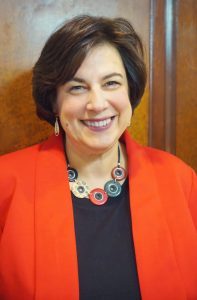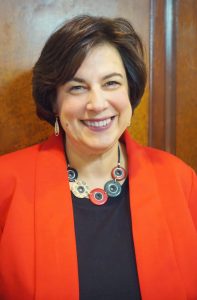Jewish Pathways to Wisdom

Ben Bag Bag said: Turn it and turn it, over and over, for everything is in it.
Mishna Avot 5:22
Ben Zoma omer eizehu hakham, ha-lomed mikol adam.
Ben Zoma said: Who is wise? One who learns from every person.
Mishna Avot 4:1
Turn it over and over, consider it from every angle, inside and out, and you will discover everything! Ben Bag Bag was referring, of course, to Torah. And not only to the Torah, but to Torah/Jewish teaching in the widest sense possible. Ben Bag Bag was making a case for taking Torah seriously, arguing for depth as well as breadth, for sustained study leading to meaning, insight and new understandings.
It turns out that, apart from this well-known saying, we know almost nothing about Ben Bag Bag. But one rabbinic tradition holds that he was the non-Jew who approached Shammai and Hillel and famously asked each of them, in turn, to explain the Torah while standing on one foot. Hillel, rather than driving him away in ange,r as Shammai had done, responded: “That which is hateful to you, do not do to your fellow. That is the whole Torah; the rest is commentary. Zil ug’mor – now go and learn!” Perhaps, if the tradition is true, Ben Bag Bag took Hillel’s final advice to heart. He was able to recognize Torah’s complexity as well as its essence, to embrace its exploration as a lifelong passionate pursuit.
In contrast, Ben Zoma’s statement locates the source of wisdom not in Torah, but in what can be learned from others. Perhaps, in an age of primarily oral transmission, that amounted to the same thing. But Ben Zoma was clearly going beyond the rabbinic circle here; he seems to be radically extending the parameters of whom we might consider to be our teachers and rabbis. Ben Zoma’s statement reflects an orientation to the world of openness, curiosity and respect. For Ben Zoma, that expansive view opens up our notion of Torah teachers…and of Torah itself.
Like Ben Bag Bag, I believe Torah invites us to deeply immerse ourselves in its richness, to add our voices to sacred conversations across generations. And building on Ben Zoma, I believe that throughout Jewish history, our greatest insights and creativity have always sprung from the rich interplay of Torah with the ideas, practices and wisdom of the cultures which surround us. Not from a total acceptance, nor from a total rejection, but from an interplay. A rich cross-pollination.
In his opening essay in Jewish Megatrends, Sid Schwarz offers four “propositions” which, he feels, “hold the key to a renaissance of Jewish life.” His first proposition, concerning the area of “Wisdom/Chochmah,” posits that “in an age of globalization, Jewish institutions need to offer multiple avenues to explore chochmah, the wisdom of our sacred texts put into the context of the world’s religions in the language of contemporary culture.” He points to the impact of globalization and technology not only on modes of transmission but on content as well. He emphasizes that “younger Jews yearn for authenticity.”
This helps explain the appeal of Chabad houses to young Jews who have no intention of adopting the Chabad-style ritual observance. Schwartz points to other educational institutions which have developed and flourished of late, including Limmud, Bina, Hadar, PANIM and others. What these programs share is accessibility to learners at all levels without religious barriers/requirements, use of primary sources (the “real thing”), serious learning, and often, an experiential and/or social justice or arts component.
Schwarz also writes that for “post-tribal, next-generation Jews, Jewish wisdom also needs to open a window to the wisdom of the world’s great religions.” I would argue that this window was flung open by an earlier generation. It has been fascinating to observe and be part of these developments. In the 1980’s, I was involved with a group of social workers and rabbis and others who were active in starting the Jewish healing movement. This was mostly a response to a felt need: for Jews dealing with serious illness and their caregivers, there did not seem to be the kinds of ready supports that there were, for instance, in Christian communities. Inspired by their example, the pioneers of the Jewish healing movement searched for Jewish sources (e.g., texts, prayers, rituals, practices) and used those to create and disseminate resources for the Jewish community. The Jewish Healing “movement” spawned workshops, articles, books, music, healing services and organizations. Their efforts also helped fuel a greater interest in Jewish approaches to contemplative practices such as mindfulness and meditation. And that interest (sometimes called the “Jew-Bu” phenomenon) has grown enormously over the past few years (viz. Orot in Chicago, Institute for Jewish Spirituality, The Soul Center in Baltimore, etc.)
At the Neshama Center, our learning is meant to be both serious and joyful. It is based on five Jewish pathways to wisdom: lively text study; social justice; mindfulness and meditation; interfaith learning; and exploring the arts. All of these are explicitly Jewish pathways of wisdom, open to all. But what does that mean?
When we offer a course in “Mussar Yoga,” what makes it Jewish? Are we simply taking a standard Yoga course and slapping on a bit of Jewish text? Are we taking a Mussar/Jewish ethics text class and just adding a Yoga pose or two? Or are we looking to do more? So, we ask: What are the shared ideas at the core of both of these approaches? What might be gained by bringing together two different modalities (in this case movement and text, body and mind)? How might this course help a person not only gain knowledge, but also insight and wisdom? How might this course help someone add meaning to their lives and make the world better?
We ask these kinds of questions every day at Neshama. Because, like Ben Bag Bag and Ben Zoma, we take Torah seriously. We believe Torah is wide and deep. We are open to learning Torah wherever we go. And to sharing it in every way possible.
_________________________________
Rabbi Debra Cantor has served as a congregational rabbi, camp director, BJE consultant and adjunct professor. She is also an artist and social activist, with a particular interest in interfaith relations and racial justice. She is the founder and director of The Neshama Center for Lifelong Learning, a joint venture between her congregation, B’nai Tikvoh Shalom in Hartford, CT and the Mandell Jewish Community Center.


